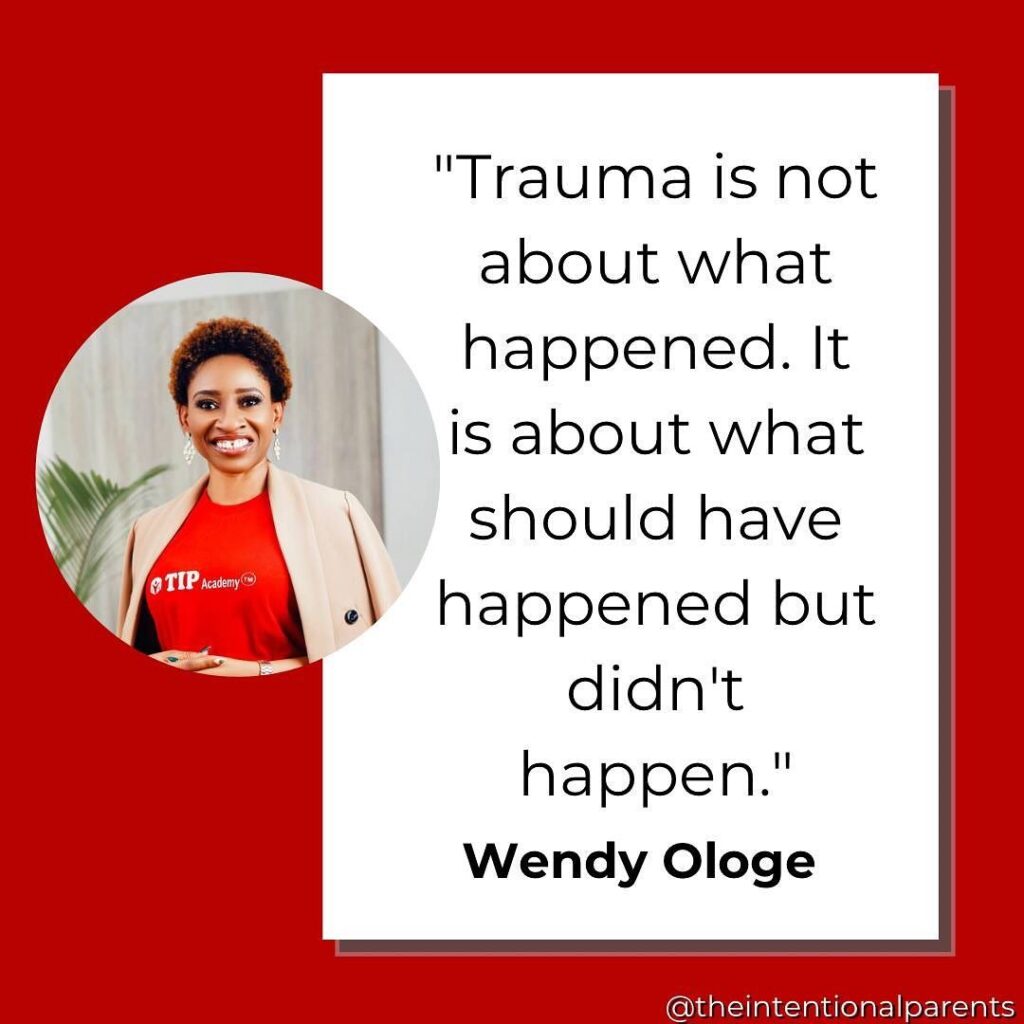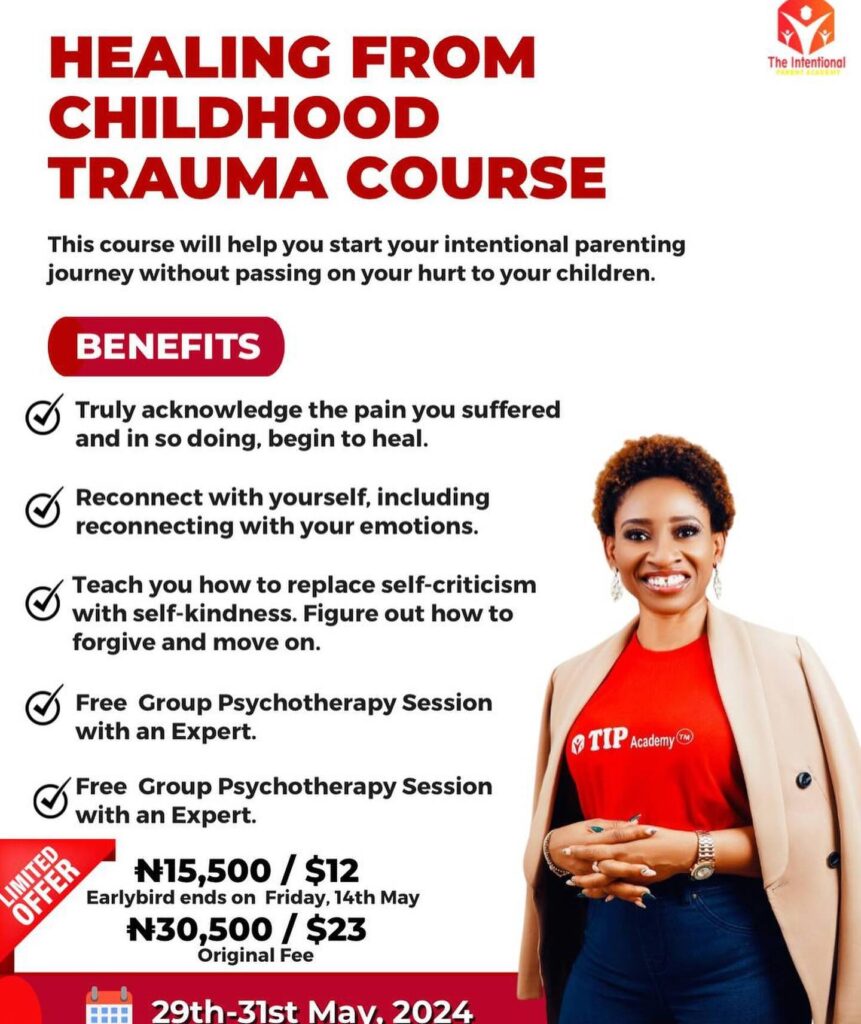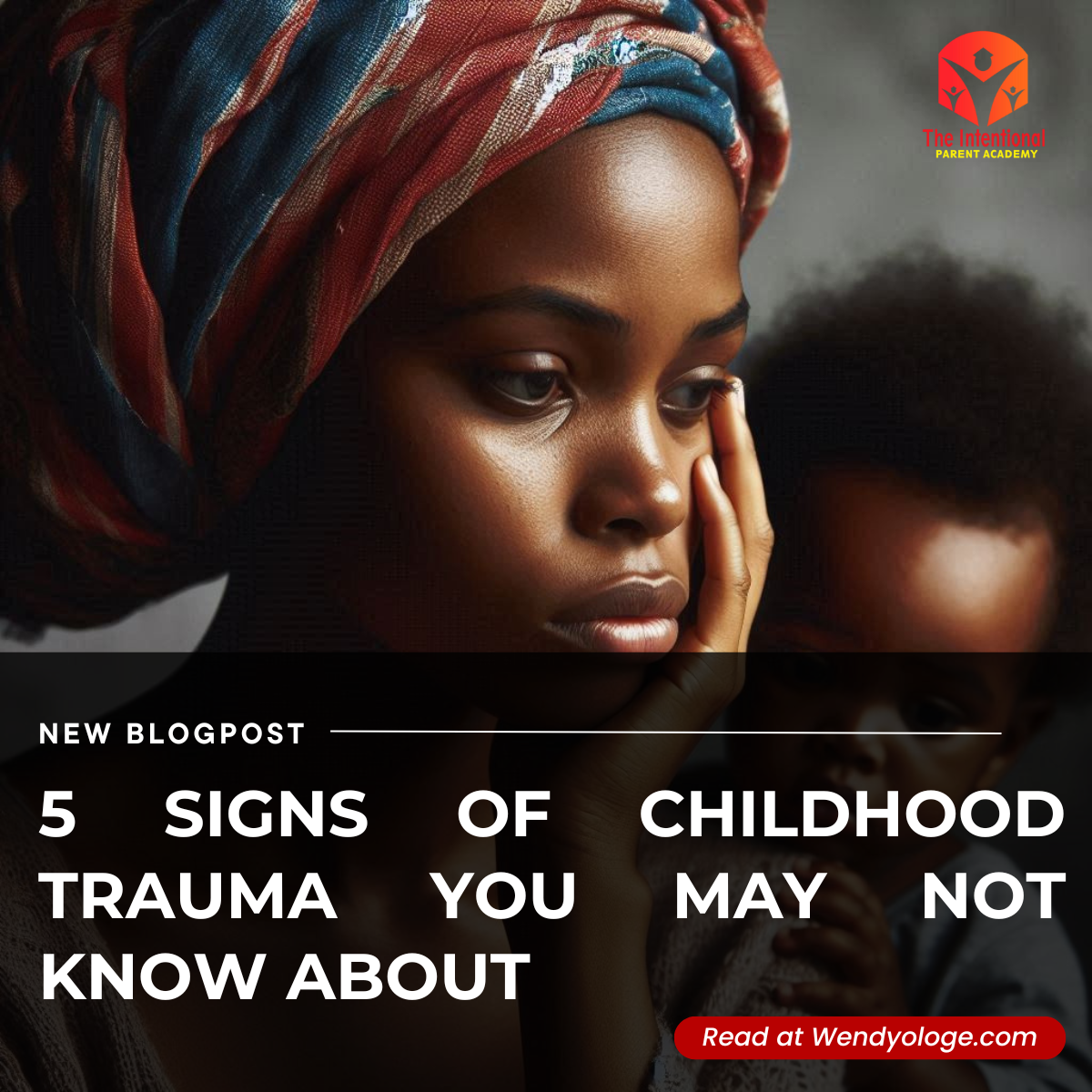Traumatic experiences happen to more people than we can ever imagine. The problem is that, most people don’t even understand what is happening to them, while a greater number tends to shy away from having this conversation.
Numbing your feelings will not end the traumatic experiences you had. Work on yourself. Deal with your trauma before it destroys you. To do these, you will have to identify the signs of trauma first. In today’s blogpost I will be sharing with you some traumatic signs you should look out for and how you can begin to heal.
When discussing trauma, many of us may not recognize that we carry its burden. There’s often a reluctance to speak ill of our parents, as we attribute their actions to good intentions. But how can we identify childhood trauma? Here are the signs:
1. Bad posture: Many of us slump or hunch over when sitting down. This posture, often associated with shame, is a protective stance. Chronic shame, experienced during childhood, can manifest in these physical mannerisms. If you notice a child consistently slouching, lowering their shoulders and eyes, it may indicate underlying shame. In past decades, shame was frequently used as a disciplinary tool in parenting. Bedwetting, for instance, was misunderstood, leading to unjustified shame. Adults who appear shy may actually be shielding themselves from feelings of shame. Despite its prevalence, childhood trauma is often overlooked, leading to shutdowns in discussions.

If you grew up in the 80s or 90s, consider attending a healing class, as unresolved issues from that era may still affect you. Trauma isn’t just about what happened; it’s also about what should have happened but didn’t. Many of us were prematurely burdened with adult responsibilities.

2. People-pleasing: Those with chronic trauma often seek acceptance and love by constantly trying to please others. They struggle with setting boundaries and find it hard to say no, and rejection is particularly difficult for them to handle. Many people struggle to decline unnecessary requests, feeling pressured to meet expectations, especially during personal or familial celebrations. While these gestures may seem positive, the underlying motivation can be traced back to trauma responses.
3. Hyper vigilance: Children who have experienced trauma may exhibit hypervigilance, constantly scanning their surroundings for potential threats even in safe environments. Overprotective parenting, stemming from the parents’ unresolved trauma, is common. This can manifest in a reluctance to let children play outside or venture out unaccompanied. Exaggerated startle responses, difficulty relaxing, and restless behavior are all indicators of unresolved trauma. Overparenting, often mistaken for love, can lead to entitlement issues in children. Sacrifice is an essential aspect of parenting, but it shouldn’t be equated with suffering. Learning to prioritize and sacrifice effectively is key to healthy parenting.

4. Dissociation is a coping mechanism where children disconnect from traumatic experiences. This can manifest in various ways, such as feeling detached from oneself or the world, experiencing numbness or memory lapses, or merely observing life without actively engaging in it. It’s essential to address any numbness or detachment towards the caregivers, as unresolved issues can impact future generations.
5. Self-sabotage: Those who have experienced trauma often harbor negative self-beliefs and engage in self-destructive behaviors. These behaviors may include substance abuse, unhealthy eating habits, difficulty in achieving goals, sabotaging relationships, and engaging in risky behaviors. Harsh self-criticism and an inability to extend grace to oneself are common traits. It’s crucial to recognize these patterns and seek healing to break the cycle of self-sabotage.

6. Perfectionism: Perfectionism is another common sign of childhood trauma. The relentless pursuit of flawlessness, coupled with self-blame for any perceived failures, can hinder personal growth and parenting effectiveness. Embracing imperfection is essential for both personal well-being and effective parenting.

7. Avoidance of emotional intimacy: Childhood trauma can also manifest as an avoidance of emotional intimacy, making it challenging to form deep connections with others. Addressing unresolved issues with parental figures is crucial for achieving emotional intimacy in adulthood.
8. Difficulty with emotional regulation: Children who have experienced trauma often struggle with regulating their emotions, leading to mood swings, intense emotions, and difficulty expressing or suppressing emotions. Seeking healing and accountability are essential steps in overcoming these challenges.
To embark on a journey of healing, consider enrolling in a trauma-focused program or seeking therapy. By addressing childhood trauma, not only will you experience personal growth and healing, but you’ll also create a more nurturing environment for future generations.

We opened up registration at the Academy “Healing From Parenting Hurt” to help you get over these hurts for the sake of your children. We have an offer you can cash in on NOW! Yes a 50% Discount from original Fee of #30,500 ($23)
So you get to Pay #15,500 instead of #30,500
We must become better for our children. Dealing with childhood trauma is a complex but necessary process. Through therapy, you can overcome childhood trauma. You can raise happy and healthy families, be productive citizens, and have a fulfilling life.
At the Healing From Parenting Hurt session, we will be helping you with the process, so you can take your life back again. We have helped almost 5,000 parents on their healing journey.
Are you hurting? Time doesn’t change anything, it’s what we do with time that makes a change. Enrol today and start your healing journey
To register for the Healing from Childhood Trauma Course, pay #15,500 to 0509494057 (GT Bank). The Intentional Parent Academy and send proof of payment through WhatsApp chat to 0903 663 3600
You can also register online here: https://selar.co/Healingcourse


